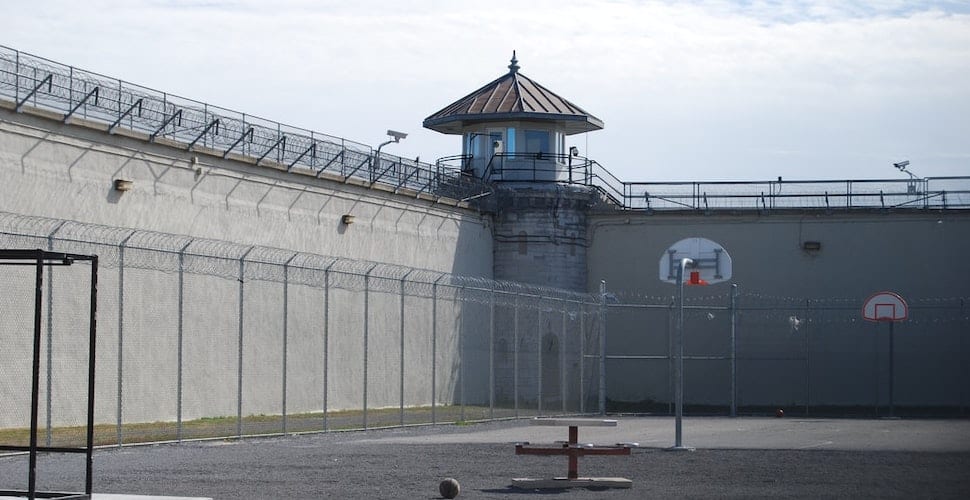According to a new investigation by Buzzfeed News, the Chinese government has built more than 100 facilities in the Uyghur Region, where it not only detains Uyghurs and other ethnic minorities but forces them to work in factories on site.
Buzzfeed’s research covers government records and satellite imagery, as well as interviews with former detainees, all of which point to a rapid expansion of compounds across the Uyghur Region—also known as Xinjiang—including 135 facilities serving as factories.
These factories bear similar architectural features, such as steel frames and brightly colored roofs, and altogether cover some 21 million square feet — nearly four times the size of the Mall of America.
The mass detention system began in 2016, and since then over one million people have been detained across the province, illustrating how vast the problem of forced labor has become.
Two former detainees spoke to Buzzfeed about their experiences:
The former detainees said they were never given a choice about working, and that they earned a pittance or no pay at all. “I felt like I was in hell,” Dina Nurdybai, who was detained in 2017 and 2018, told BuzzFeed News. Before her confinement, Nurdybai ran a small garment business. At a factory inside the internment camp where she was held, she said she worked in a cubicle that was locked from the outside, sewing pockets onto school uniforms. “They created this evil place and they destroyed my life,” she said.
In response to questions about this article, the Chinese consulate in New York quoted a worker from Xinjiang’s Karakax County who called allegations of forced labor in the region “slander” while speaking at a government press conference, saying villagers in the region are earning higher salaries and learning new skills. “We hope everyone can distinguish right from wrong, respect the facts and do not be deceived by rumors,” the consulate added.
Xinjiang’s industry is booming, and the region has one of the fastest GDP growth rates in China. Xinjiang exports a range of products, from clothing to machinery, and the US is one of the region’s fastest-growing markets. Xinjiang’s factories produce many goods that eventually make their way to US consumers. Apple, Nike, and Coca-Cola, among others, lobbied Congress this year to water down a bill that would ban the import of products made with forced labor there. (Apple has said it did not try to weaken the measure, and Nike has said it “did not lobby against” it.) The bill overwhelmingly passed the House of Representatives in September, but the Senate has yet to debate it.
Forced labor is so endemic to the Uyghur Region that many labor rights activists believe that no company sourcing from the region could conclude that their supply chains were untouched by the abuses.
“Corporations should stop producing in, and sourcing from, Xinjiang,” said Scott Nova, executive director of the Worker Rights Consortium. “There is no way to produce responsibly in the region until the forced labor and broader repression ends.”
Nonprofit research institute C4ADS compared the locations of the factories identified by BuzzFeed News to a database that compiles address information from China’s government registry for businesses, finding that 1,500 Chinese companies were located right by or at the factories in the Uyghur Region.
Ninety-two of them were listed as import-export businesses, meaning that goods produced using forced labor were being sent around the world. Trade data revealed that some of these goods have made their way to Sri Lanka, Kyrgyzstan, Panama, and France. One company sent pants to California.
The underlying problem fueling forced labor is China’s anti-poverty campaign, which in principle aims to move ethnic minorities — referred to as “surplus labor” who have “lazy thinking” by the government — into jobs like picking cotton and sewing.
Yet ethnic minorities have no choice in the matter, and dozens of former detainees report being forced to study Mandarin Chinese and praise the Chinese Communist Party while being detained.
Freedom United launched a global petition calling on the Chinese government to free Uyghurs from forced labor. Over 62,000 supporters have already added their names – join the campaign today.







Freedom United is interested in hearing from our community and welcomes relevant, informed comments, advice, and insights that advance the conversation around our campaigns and advocacy. We value inclusivity and respect within our community. To be approved, your comments should be civil.
I remember the days when our government. Would stand up against human rights abuses around the world! Then the big money, special interests. Took over our government! And the disastrous “FREE TRADE” economic policy, ruined our great nation! And has led to human rights exploitation, around the globe! SHAME ON ALL WHO HAVE BENEFITED FROM THIS EVIL! Wall st., the U.S. Chamber of Commerce, crooked pols, etc.! TRADE REFORM NOW! FAIR TRADE, NOT FREE TRADE!
The region is under Chinese governing, meaning it is part of China. Doesn’t it make sense that the people’s academic curriculum includes studying Mandarin Chinese and praising the Chinese Communist Party, if these are what is required by the general public of Chinese people outside of the region? I believe this is assimilation. Former “detainees” can also find work and communicate easier in other places of China (if the wish to explore) when they know the language.
satellite images of builings and people we don’t know who they are and faky journalism telling us to start a economic war.. really? Do you really believe it’s that simple?
Why are, nt the Muslim countries fighting for their people against the CCP?
Good question. I think it’s because the accusations and the facts are not aligned.